
Pathways, Benefits, and Tips
A Comprehensive Guide to Europe PR Immigration
What is European PR?
- EU vs Non-EU PR: While citizens of European Union (EU) member states have free movement and do not require PR, non-EU citizens must follow the specific immigration rules of each European country to achieve PR. - EU Permanent Residence: After living in an EU country for a specific period, non-EU nationals may also be eligible for EU long-term resident status, which offers similar rights across all EU countries.
Key Pathways to PR in Europe
Work-Based Immigration (Highly Skilled Workers)
Many European countries offer pathways to PR for skilled workers, particularly those in sectors facing labor shortages. The EU Blue Card, for example, allows highly skilled non-EU nationals to live and work in any EU member state, except Denmark and Ireland. The Blue Card is available to individuals who meet specific qualifications, such as having a higher education degree and a job offer with a salary above a defined threshold.
- Eligibility: Typically, applicants must have a job offer in a field that requires specialized skills, and they must meet minimum salary
- Pathway to PR: The EU Blue Card is usually issued for a period of 1–4 years. After 5 years of holding a Blue Card, you can apply for long-term resident status, which grants PR in the
- National Work Permits: Countries like Germany, France, the Netherlands, and
Sweden offer national work permits that lead to PR, typically after 5 years of continuous residence.
Tip: Countries with high demand for skilled workers, such as Germany, France, and the Netherlands, are ideal destinations for work-based immigration.

Family Reunification
- Eligibility: Applicants must prove a genuine family relationship and meet specific income or housing requirements set by the host country.
- Pathway to PR: After living in the country for a specified period (usually 3–5 years), family members may be eligible to apply for PR.
Tip: Ensure you provide comprehensive documentation of your relationship, such as marriage certificates, proof of cohabitation, and financial records.

Investment Immigration (Golden Visa Programs)
- Countries Offering Golden Visas: Countries like Portugal, Spain, Greece, and Malta offer Golden Visa programs.
- Portugal: Requires a minimum investment of €280,000 in real estate or other approved sectors. Investors can apply for PR after 5 years of residency.
- Spain: Requires an investment of €500,000 in real estate. After living in Spain for 10 years, you can apply for PR.
- Greece: Offers a €250,000 real estate investment option, with the opportunity to apply for PR after 7 years.
- Malta: Requires a €600,000 donation to the government or investment in real estate. After 5 years, applicants can apply for citizenship.
Tip: The Golden Visa route often offers fast-track pathways to PR and citizenship. Be sure to seek legal advice to ensure that your investment meets all requirements.
Study-to-PR Pathway
Many students use their time in European countries to transition into PR status. Most European countries allow students to stay in the country after graduation to work and later apply for PR.
- Eligibility: Students must typically graduate from a recognized institution and have a job offer or a stable
- Pathway to PR: After completing their studies, graduates may qualify for a temporary residence permit to After living and working in the country for several years (usually 3–5 years), they can apply for PR.
Tip: Countries like Germany and the Netherlands offer attractive post-study work visa options that allow graduates to search for jobs that qualify for PR applications.

Long-Term Residency in EU Countries
- Eligibility: You must have legally resided in the EU for 5 continuous years, be financially self-sufficient, and demonstrate knowledge of the local language and culture.
- Benefits: The long-term residence permit is valid across all EU member states (except Denmark, Ireland, and the UK), allowing you to move freely within the EU for work or study.
Tip: To avoid potential issues with long-term residency, ensure you meet the residence and financial requirements, and avoid long absences from the EU during your qualifying period.
Asylum and Refugee Status
Benefits of PR in Europe
Freedom of Movement
Access to Healthcare
Education
Social Security and Benefits
Pathway to Citizenship
Tips for a Successful PR Application in Europe
Understand the Specific Rules of the Country
Meet the Financial and Language Requirements
Maintain Continuous Residence
Consult an Immigration Lawyer
Conclusion
Europe offers diverse and flexible pathways to Permanent Residency for non-EU nationals. Whether through work-based immigration, family reunification, investment programs, or study-to- PR routes, obtaining PR status in a European country can provide numerous advantages, including access to healthcare, education, and social security. By understanding the specific requirements and following the appropriate steps, you can enhance your chances of securing PR in your chosen European country.
